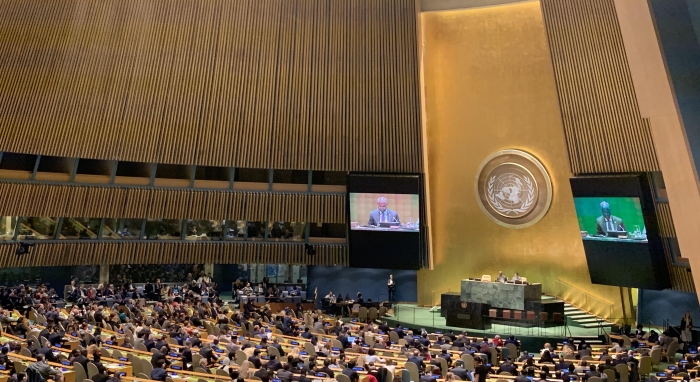Despite a history of ongoing violations across the full spectrum of human rights, and a record of non-cooperation with UN human rights mechanisms, Venezuela still gained a slim majority of support from UN member States at today’s Human Rights Council elections.
‘A majority of States made the decision to put politics over human rights when they decided to elect Venezuela to the world’s premier human rights body,’ said ISHR’s Eleanor Openshaw.
‘This is hugely disappointing and a clear dereliction of duty given the clear criteria established by the General Assembly on the human rights standards required of Council members,’ she added.
Members of the Human Rights Council are required to uphold ‘the highest standards in the promotion and protection of human rights.’ The OHCHR’s July 2019 report documenting ‘grave violations of economic, social, civil, political and cultural rights’ made clear that Venezuela was an unfit candidate.
Costa Rica’s candidacy for the Latin American and Caribbean slate, presented just two weeks ago, was made as a direct challenge to Venezuela on the basis of their human rights record. Only three out of the five UN regional groups put up competitive slates, meaning that there were more candidates than available seats.
‘Competition in UN elections matters. UN regional groups should commit to putting forward competitive slates as a matter of course,’ said Openshaw. ‘Costa Rica should be congratulated for putting itself forward as a candidate, even at a late stage.’
‘Had just five States voted differently – voting for Costa Rica over Venezuela – Costa Rica would have been successful in their bid for membership,’ she added. Brazil received most votes overall (153) for all candidates in the group.
As a new member of the Council, Venezuela will join a body that just last month established a fact-finding mission ‘to investigate extrajudicial executions, enforced disappearances, arbitrary detentions and torture and other cruel, inhumane or degrading treatment since 2014’ in the country. The Council has already defined a follow-up measure – the establishment of a commission of inquiry – if the situation in the country continues to deteriorate.
‘Whilst Venezuela has said it will not cooperate with the fact-finding mission, it must be urged to reverse that position,’ said Openshaw. ‘Venezuela’s membership of the Human Rights Council must be made to mean something. States need to hold the Venezuelan government to account.’
The full list of 14 States elected as members for the Human Rights Council today, with voting tallies, are shown in bold below:
- African Group (4 seats): Libya (168), Mauritania (172), Namibia (175), Sudan (175).
- Asia and Pacific Group (4 seats): Indonesia (174), Japan (165), Republic of Korea (165), the Marshall Islands (123), Iraq (121)
- Eastern Europe (2 seats): Armenia (144), Poland (124), Republic of Moldova (103).
- Latin America and Caribbean (GRULAC) (2 seats): Brazil (153), Venezuela (105), Costa Rica (96)
- Western Europe and Others Group (2 seats): Germany (174), Netherlands (172).




